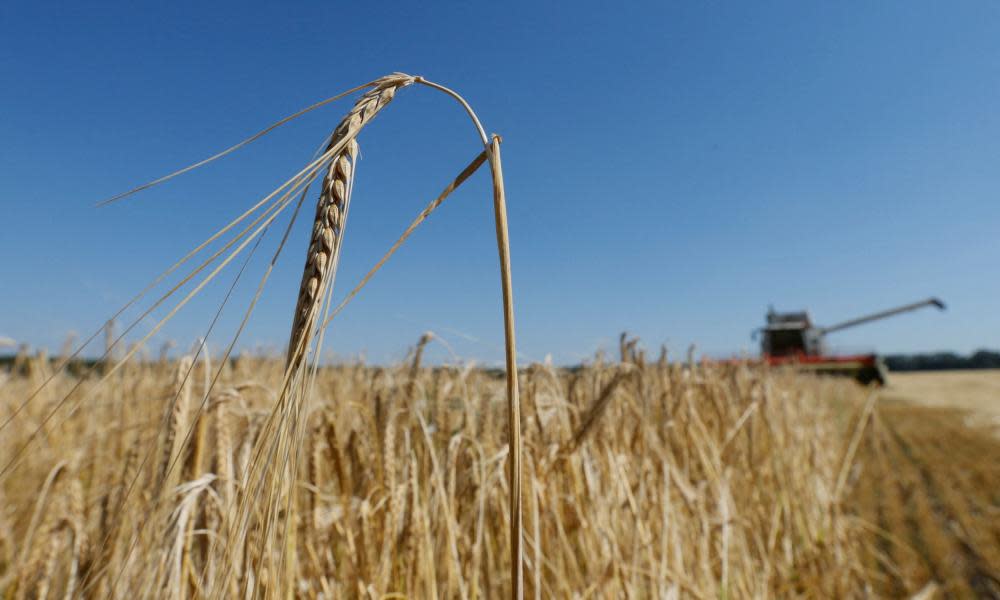Lithuania wants naval coalition to lift Russia’s blockade of Ukraine’s grain

Lithuania has called for a naval coalition “of the willing” to lift the Russian Black Sea blockade on Ukrainian grain exports.
The Lithuanian foreign minister, Gabrielius Landsbergis, proposed the plan during talks with the UK foreign secretary, Liz Truss, on Monday in London.
“Time is very very short. We are closing in on a new harvest and there is no other practical way of exporting the grain except through the Black Sea port of Odesa,” he told the Guardian. “There is no way of storing this grain and no other adequate alternative route. It is imperative that we show vulnerable countries we are prepared to take the steps that are needed to feed the world.”
Landsbergis proposed that a naval escort operation – not run by Nato – could protect the grain ships as they headed through the Black Sea and past Russian warships. He suggested that, apart from Britain, countries that were affected by the potential loss of grain such as Egypt could provide the necessary protection.
“What we have seen now is just the beginning. The worst is yet to come in the next five to seven weeks when the first harvest arrives and there is no place to put it, so that means people in northern Africa, the Middle East and south-east Asia will be paying exorbitant prices for wheat, corn and the other commodities they need to put food on their table”. He said Ukraine needed to export 80m tonnes of wheat alone this year and the only option was through Odesa, the last Black Sea port held by Ukraine.
His plan, under gestation for weeks, would require demining parts of the Black Sea to ensure safe passage, as well as the agreement of Turkey, which guards the entrance to the Black Sea.
“This would be a non-military humanitarian mission and is not comparable with a no-fly zone,” he said. “In this endeavour military ships or planes or both would be used to ensure that the grain supplies can leave Odesa safely and reach the Bosphorus without Russian interference. We would need a coalition of the willing – countries with significant naval power to protect the shipping lanes, and countries that are affected by this”.
Nato as an alliance should not take a role, he said.
The UN secretary general, António Guterres, has warned of “a hurricane of hunger” if Ukrainian grain is not exported. The world’s 41 least-developed nations import a third of their wheat from Ukraine and Russia. Soaring food prices have already driven inflation levels in Egypt to the highest level since mid-2019.
Asked how Britain had reacted to his plan, Landsbergis said: “From my perspective the British government is interested in assisting Ukraine in any way it can. The UK has taken some very strong and decisive steps in this crisis and maybe there is a chance that the UK will participate. Britain was the first country to provide rockets to shield Odesa”.
He said Lithuania, one of Ukraine’s closest allies in the west, had been looking into how Ukraine would feed the world for weeks.
Landsbergis said alternative routes by rail through Belarus or by road to the Baltic Sea ports in Poland and Lithuania had severe practical drawbacks, while bottlenecks and complete overload would mean it would take Ukrainian trucks five to nine weeks to reach ports by road either in Romania, Poland or Lithuania.
Turkey, Landsbergis acknowledged, had its doubts about the escalation potential inherent in his scheme. However, he pointed out that as a major importer of grain, Turkey had a self-interest in the naval lanes being opened up if Russia would not voluntarily lift the blockade.


